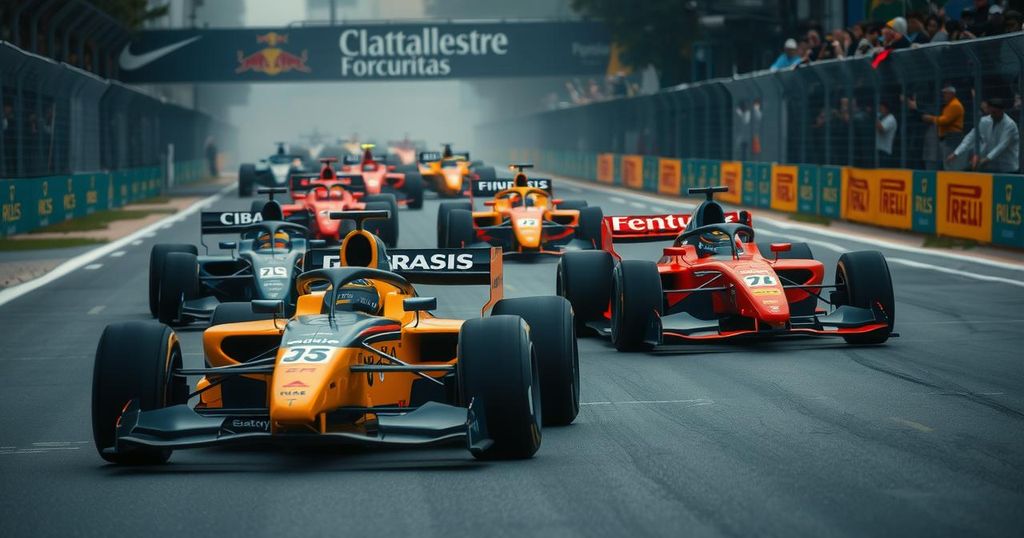F1 Television Rights Under Scrutiny as Brazilian GP Concludes America’s Triple-Header

The Brazilian Grand Prix concludes a three-race weekend series, amidst significant uncertainty regarding TV broadcast deals in Brazil and the U.S. While Band grapples with contract obligations in Brazil, Globo is poised to reclaim broadcasting rights. In the U.S., ESPN has seen record viewership and is contemplating future contracts as interest in Formula 1 surges.
As the season draws to a close at the Brazilian Grand Prix, Formula 1’s broadcast future in both Brazil and the United States remains in flux. With contracts extending until 2025, both territories are experiencing significant uncertainties regarding television deals amid growing audience interest. The Brazilian GP at Interlagos marks the conclusion of a thrilling three-race stretch in the Americas, characterized by a competitive battle between three main teams for the world championships. This competition has heightened global viewership. In Brazil, the presence of local star Gabriel Bortoleto, a strong competitor for the upcoming Formula 2 championship, could substantially influence the broadcast rights market. Band, the current broadcaster, is facing financial difficulties in fulfilling its contract obligations established in 2022, which covers all Formula 1 races until 2025. Reports suggest that Band is negotiating new terms but has so far rejected the hefty cancellation fees associated with an early termination. In contrast, Globo, Brazil’s largest commercial network, is anticipated to return to broadcasting Formula 1 by 2026, having reportedly already negotiated an agreement to air 15 races on free television. However, a definitive transition from Band to Globo has yet to be executed due to their existing contract. Meanwhile, in the United States, interest in Formula 1 has surged, as reflected in ESPN’s record viewership figures. ESPN’s current broadcasting deal, which began in 2022 and runs through 2025, requires significantly more financial investment compared to the previous contract, reportedly costing $90 million annually. Despite these successes, it is unclear whether ESPN will retain exclusive rights post-2025, with speculation on whether other networks might enter the bidding. As F1’s popularity continues to grow, the future of broadcasting rights could bring in unprecedented valuations.
The Brazilian Grand Prix concludes the series of races in the Americas, drawing attention to the television broadcasting landscape within these crucial markets. Contracts for F1 broadcasting in Brazil and the United States extend until 2025, yet there are potential shifts in viewership and broadcast rights that might reshape the landscape. The roles of broadcasters such as Band and Globo in Brazil are pivotal, especially with rising interest in local drivers such as Gabriel Bortoleto. Similarly, ESPN’s increasing investments and growing viewership in the United States indicate a lucrative potential for new deals following the current contracts.
In summary, the Brazilian Grand Prix signifies not just the conclusion of a competitive period in Formula 1 but also highlights the ambiguity surrounding television broadcasting rights in both Brazil and the United States. As local and international interests evolve, the future contracts set for 2026 and beyond may significantly impact how audiences engage with Formula 1 in these key markets.
Original Source: www.autosport.com




